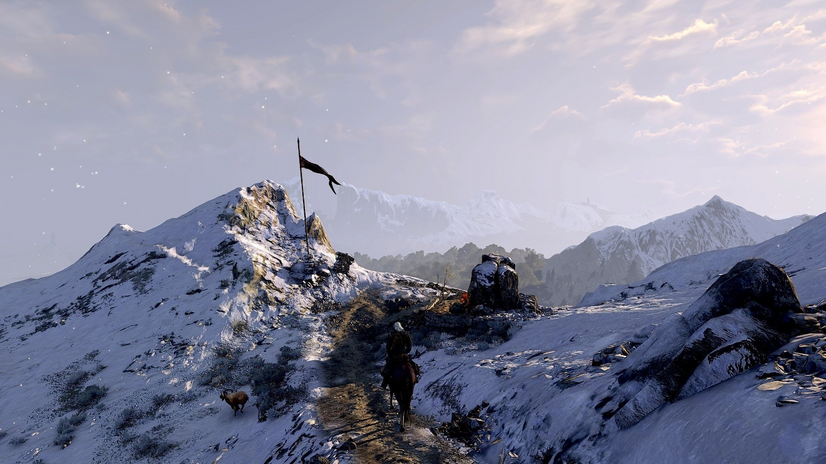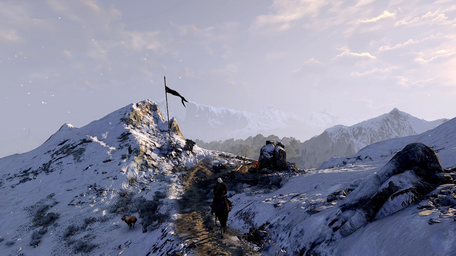Like many people over quarantine, I spent a good chunk of my time at home marking TV shows and video games off of a years-old “things to procrastinate on doing” list. One of these shows was Netflix’s “The Witcher,” a television show inspired by the famous Polish book series by Andrzej Sapkowski.
Being the nerd I am, I’d heard the term “witcher” before, but only in reference to the famous video game series of the same name created by the Polish company CD Projekt Red. The game series was also inspired by Sapkowski’s novels and the third and arguably most popular game in the series, The Witcher 3: Wild Hunt, earned the title Game of the Year in 2015.
When I first saw the Netflix show advertised online, I wasn’t too keen on watching it, as I wasn’t the biggest fan of Henry Cavill after seeing his performance as “Superman” (no, I don’t know what was wrong with me either). However, after some persuading from friends who insisted that I was a lot like one of the show’s main characters, I decided it might be a fun show to binge with my dad since “Game of Thrones” kinda crashed and burned.
My dad and I loved “The Witcher” so much that we binged the entire jam-packed, eight-hour first season in less than a day.
First of all, I should give you a brief warning if you haven’t watched the show yet, as it’s one I was very grateful my friends gave me! The goal of the first season of “The Witcher” is to tell the story of the novel’s three main characters all at the same time despite all of them being from very different time periods before meeting. The story shows multiple parallel timelines throughout the season, so don’t assume that if the scene cuts to a new character that you’re in the same year or even decade. I know that sounds really confusing and probably a huge turn off from watching the show, but just trust me on this!
Related: Why You Need to Add “Sex Education” to your Netflix Watchlist
I think there are two main aspects of “The Witcher” that really stuck out to me and made the timeline worth navigating. The first reason being how the show set it up as more of an ensemble piece rather than just the story of the witcher and main character himself, Geralt of Rivia. The novels and video games series are told more heavily from Geralt’s perspective, so getting to explore all of the different characters’ stories and backgrounds before meeting Geralt was something really intriguing and frankly beautiful.
The second reason I loved “The Witcher” was because of its strong and powerful female presence. The showrunner, executive producer, composer and many of the shows’ writers and directors are all women, as well as a large portion of its cast.
Netflix recently released a half-hour, behind the scenes special called “Making The Witcher,” where many of these women talk about their part in the creative process behind putting the show together and how they worked with the original author, Sapkowski. In the special, showrunner and executive producer, Lauren Schmidt Hissrich, talked about one of her meetings with Sapkowski and how she asked him about making such beloved and powerful female characters in 1980’s Poland.
Hissrich recalls how “his [Sapkowski’s] point was that for a nation that was so war-torn and had so much conflict; they lost a lot of their men in those conflicts, and women became quite the centers of communities and even the workplace.”
After watching the show and putting well over 120 hours in The Witcher 3, I have such an appreciation for the women of this series. From Yennefer of Vengerburg to Cirilla of Cintra, and the countless sorceresses, medics and queens that this series includes. Geralt is surrounded by strong and powerful women everywhere he goes in every form of media he’s in. So much of his character development comes from his interactions and respect for the women he meets. In the video games, Geralt would get absolutely nowhere if it weren’t for the countless women who light the way for him.
Related: A Comprehensive Guide to Netflix’s The Witcher
“The Witcher” is a hugely important piece of pop culture for Polish fans and it has been since Sapkowski started publishing his short stories about Geralt in the 1980s. These stories were initially written and released entirely in Polish. The first book, “The Last Wish,” wasn’t released in English until 2007, fourteen years after its original publishing in Polish. Many of the scenes in the Netflix series were shot in Poland, and there was a team of Polish staff on the production to help maintain the original stories and the meaning behind them. The Polish game company CD Projekt Red also drew a lot of Polish inspiration for their game series. This comes primarily in a visual form, as many buildings and terrain in the games actually exist in modern-day Poland, just adapted to fit the thirteenth-century look of the game.
I think it’s safe to say that if you haven’t seen “The Witcher” yet, I’d highly recommend it. I would also recommend that if you ever get the chance, play The Witcher 3. I played the game as a standalone and the developers made it very easy to catch up on the first two games. The game has stunning graphics (the picture up top is actually from the game) and since 2020 is the five year anniversary of its release, the Game of the Year Edition has been on sale for super cheap for a substantial portion of the year so far!
Good luck getting “Toss a Coin to Your Witcher” out of your head.



